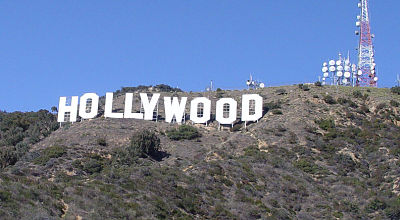The 10 Biggest Myths About Hollywood
1. Hollywood hates Christians. The fact is, Hollywood—and most of the mainstream media—is ignorant of all things “Christian.” Most of the media leaders in this country are simply not people of any faith background, so while it may appear they dislike issues of faith, the truth is they just don’t get it. In fact, the majority of people I’ve encountered at high levels of influence in the industry are very interested when we discuss spiritual issues and have no problem at all with my faith.
2. All I need is a great script. The process of making movies or television programming is complex and multi-layered. Many years ago, a major industry magazine did a feature story on “The Best Scripts No One Will Ever Produce.” Today, at industry gatherings, we still discuss brilliant scripts floating around town and why they’re not getting produced. It’s often a matter of finding the right cast and crew, political or cultural timing, budget issues, legal problems and more. A great script is a critical starting point, but that doesn’t necessarily mean clear sailing for your project.
3. Hollywood executives are idiots. After watching another lame movie, it’s easy to wonder who exactly is making these decisions. Yes, sometimes there’s no clear explanation, but know this: Entertainment is America’s number one export globally. The media industry is bigger than electronics, defense or agriculture. The Los Angeles Times reported that after the allies first invaded Afghanistan after 9/11, the first public buildings to reopen weren’t hospitals, government buildings or schools. They were movie theaters, playing American movies.
Every year or so, I meet a businessman from the heartland of America (often a Christian) who’s determined to open an office in Hollywood and “show those idiots how it’s done.” But within a year or two, they lose so much money, they shut their doors and go back home. The entertainment industry makes billions of dollars, so someone in Hollywood knows exactly what they’re doing.
4. It’s all about money. Considering the cost of movies and the salaries paid to high-level actors, writers and directors, you’d think everything in the industry is about the bottom line. Yes, studios and networks need to make a profit just like every business, and sometimes it appears they’d sell their grandma to make a buck. But studios are also very interested in prestige—which accounts for all the small movies that feature major talent. Winning an Oscar means so much to a studio, they will often gamble on a serious art film—knowing they’ll probably lose money—in a long-range effort to make something meaningful that will get them noticed.
5. I must have an agent to succeed. One of the most successful episodic TV directors I know told me that in 25 years of working in Hollywood, his agent hasn’t gotten him a single job. Most people don’t really understand the role of agents. Yes, they can find you work, but most professionals find projects through personal relationships and networks—word of mouth. They use agents to negotiate the deal or help them find new material, and agents are also important to help actors get into the right auditions. But don’t for a minute think you can’t succeed in Hollywood without an agent—particularly in the independent world. An agent is a great asset, but certainly not necessary for launching a career. By the way, a good entertainment attorney can also help you negotiate deals, get into meetings and find material—and they’re often easier to find early in your career.
6. With today’s technology, I can live anywhere and don’t have to be in New York or Hollywood. That may be true, but only to an extent. The fact is, the deals are still made in Hollywood and New York, and you’ll find it very difficult to make progress with only occasional trips to the coast. Certainly you can make local commercials, corporate videos and other projects just about anywhere in the country, but if you want to swim in the adult end of the pool, you’ve got to jump into the deep water. I tried this years ago, commuting from Tulsa, Okla. I would schedule a week of meetings in LA, and then fly out with a killer schedule. But each time at least one-third of the meetings would get postponed or rescheduled at the last minute, and I had to write them off. Most meetings happen at the last minute, and it’s so much easier to drive across town than fly across country.
7. There aren’t any Christians in New York or Hollywood. The truth is, there are vibrant ministry organizations filled with Christians from the entertainment industries on both coasts. Check out Hollywoodconnect.com and find out the wide range of Christian groups. Most believers would be surprised to find just how high level some Christians are in the industry, from major studio executives, high-level producers, actors, directors and more.
8. Distribution isn’t as important as making a great film. There’s no substitute for making a great film, and I wish there were more of them. But that’s only half the battle. No matter how great the movie, if no one sees it, you’ve failed. Distribution is one of the most important pieces of the puzzle, and oddly enough, it’s the weakest link when it comes to projects created by people of faith. Most films made by Christians fail because of poor or non-existent distribution.
Mark Zoradi, former president of the Motion Picture Group at Disney, is a long-time distribution executive, and is the first to tell you of the important role theatrical and DVD distribution plays—especially on the global stage. My recommendation is that it’s never too early to start working on distribution—even at the writing or development stages of a project. The biggest mistake you can make is to raise millions of dollars for a movie without a good strategy for distribution already in place.
9. The biggest need from a Christian perspective is to have more creative people. I’m a creative, so I’m always looking to increase our ranks in the media world, but the truth is, one of our most critical “soft spots” from a faith perspective is high-level executives in the industry. No matter how powerful a producer or director might be, he or she still needs a studio or network executive to “green light” the project.
Many a good movie or TV series has failed because it didn’t have enough executive support. I would encourage film programs at Christian colleges to start emphasizing media management, and graduate business leaders with a focus on entertainment. Act One Hollywood has a curriculum to train studio executives because the need is so great.
10. Hollywood isn’t a mission field. There’s a joke in town that the church will send missionaries to reach half-naked heathen in Third World countries, but not to reach half-naked heathen in Hollywood. Traditional mission fields are important, but considering the global impact of entertainment and the massive influence it has on culture, it’s amazing that the church today hasn’t made reaching the entertainment industry a higher priority. Media leaders aren’t the enemy. They’re simply people like us in need of the transforming power of the gospel.
Dr. Larry Poland at Mastermedia International has made remarkable inroads here, and has created the National Media Prayer Breakfast held each year in Los Angeles. I would encourage every church in America to reconsider the entertainment capitals of the world as mission fields, and focus more attention on reaching the most influential industry in the world.




























































